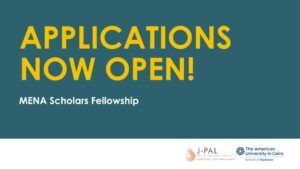The Urban Studies Foundation (USF) is delighted to announce a further round of its International Fellowship programme enabling early to mid-career urban scholars from the Global South to take an extended sabbatical (3-9 months) in a university or other academically-accredited institution in the Global North or South. Preference may be given to candidates from least or low income countries, but middle income developing countries are not excluded if the need for support is justified. The Global South is defined here as countries on the OECD’s current ODA recipient list (2021).
Purpose of the Fellowship
The International Fellowship is intended primarily for the purpose of writing-up the candidate’s existing research findings in the form of publishable articles and/or a book under the guidance of a chosen mentor in their field of study. Research centring on issues related to governance, planning, social equity, policy, critical theory, uneven development, and urban sustainability is particularly welcome, but proposals embracing other urban topics are also encouraged.
Additionally, it is intended that such outputs should expand theoretical and empirical understanding of the major social, economic, political and other issues associated with the rapid processes of urban growth in the Global South. The programme is therefore designed to give scope to the exchange of ideas between urban scholars working in various parts of the globe. To this end, particular importance is attached to the identification and willingness of an established urban scholar working within a northern or southern institution to act as a mentor of the fellow. As part of this, the purpose of the International Fellowship also aims at:
– Fostering collaboration between an emerging researcher from the Global South and a suitable and experienced researcher.
Building and strengthening institutional-academic networks of urban studies at a truly global scale.
Strengthening the international profile and career path of the Fellow.
Developing and publishing high-quality research on a topic that makes a significant contribution to the study of urbanization in the Global South and more widely. It is anticipated that the work undertaken might be of a largely theoretical nature or focused on
the analysis and conceptual development of empirically-based research for which the data has already been collected. Therefore, the Fellowship is not designed for the support of primary data collection.
Criteria for appointment of the Fellow
PhD in a relevant subject awarded within the last 10 years (by the application deadline). Relevant disciplines include geography, political science, economics, sociology, demography, planning; though this list is not exhaustive.
Originality and the quality of the proposed sabbatical research.
Previous academic achievements. Applicants will need to provide evidence of their achievements to date, e.g. publications, papers at international conferences, etc.
Currently resident in a country in the Global South, and have a formal affiliation with a university or other higher education and/or research institution in the Global South.
A national of a country belonging to the Global South, defined here as countries present on the OECD’s current ODA recipient list (2021).
The fellowship is entirely self-managed, and the USF cannot assist with issues surrounding negotiations between candidates and prospective mentors or host institutions.
Please note that previous International Fellows are not eligible to apply for a second fellowship. Only one application per candidate, per call, is allowed.
The fellowship must begin within one year of the closing deadline. Requests to delay or defer the fellowship must be submitted in writing to the USF.
The Urban Studies Foundation strongly suggests that candidates, mentors and host institutions carefully consider the feasibility of their proposed start dates due to the current coronavirus pandemic.
The fellowship must be taken up at a different institution to the candidate’s current position
Method of Application
Candidates must complete the online application form below no later than 30th April 2021 (by 23:59 GMT, UK time).
A link to the online application form can be found below, along with an application template (.docx) that may be used for offline preparation beforehand (recommended).
The application must include:
Applicant information including: contact details, recent education, recent academic roles, and the names and contact details of two academic referees. Both referees should be prepared to submit blind letters of recommendation to the Urban Studies Foundation upon request.
Fellowship proposal information including dates, mentorship and host institution arrangements.
A draft budget in GBP with main cost items, including documentary evidence for all cost items above GBP 500 uploaded as a single pdf (e.g. flight prices, quotes for accommodation, local cost of living rates, etc.).
A proposal (in English language) that includes: an outline of the planned research (1200 words maximum), intended outputs (300 words maximum), designation of the host institution (300 words maximum), and a statement of how the candidate’s chosen mentor will support and facilitate the proposed research (300 words maximum).
Proof of applicant’s nationality and therefore eligibility for the award.
Applicant CV listing academic achievements and publications (3 pages maximum).
Short CV from the mentor which includes any previous mentoring experience (3 pages maximum).
Supporting letter from the prospective mentor stating their willingness to act as a mentor to the fellow, and indicating the suitability of the host institution for the proposed sabbatical study (2 pages maximum).
Application Deadline:30th April 2021
For More Information:

